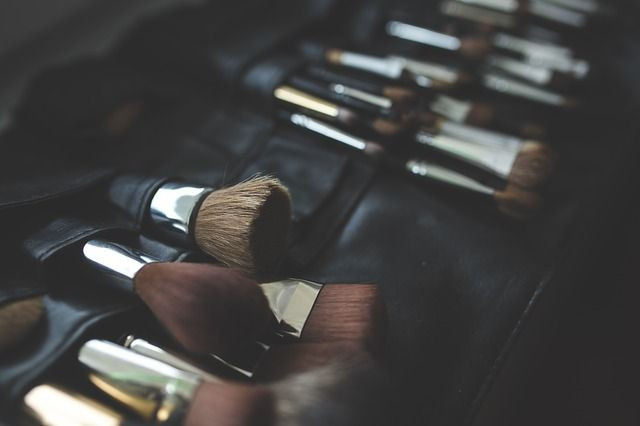Wearing Makeup Changes How Others Perceive You, For Better Or Worse

Makeup can do more than just change your appearance — it can also alter others’ perceptions of you, for better or for worse. According to new research from the University of Stirling in Scotland, although both men and women perceive women who wear makeup as being of a higher status, men associate makeup with prestigious positive qualities, while women view other women wearing makeup as being dominant and a potential threat.
For the study, now published online in the journal Perception, Dr. Viktoria Mileva and her team applied a standardized amount of cosmetics to female faces using computer software and then asked volunteers to rate the faces with and without makeup for various traits including attractiveness, dominance, and prestige.
Results showed that men and women both rated the faces with cosmetics as being more attractive, but only women rated made-up faces as being more dominant while only men rated made-up faces as being higher in prestige. A follow-up study investigated the root cause behind these differences in perception and found that female-on-female jealousy seemed to be the main cause for the differences in perception.
“Women rating women with make-up said they would be more jealous of them, thought they were more promiscuous, and would be more attractive to men than their non-makeup wearing counterparts,” said Mileva in a recent statement.
New research has estimated that the average American woman spends around $15,000 in a lifetime on makeup, and although many associate makeup with trying to appear more attractive, cosmetic products are good for more than just giving you a pretty face. According to the study, it can be particularly useful for women to understand how wearing makeup alters others’ perceptions of them in situations where they are trying to gain others' trust and admiration.
“At a job interview, knowing whether the hiring committee will consist of men or women might influence a female candidate's decision about wearing make-up,” explained Mileva. “Whether the interviewers will view her as attractive, dominant, and/or prestigious can affect her and the interviewer's' actions and perhaps the outcome of the interview itself.”
In addition to adjusting how others perceive you, makeup can also adjust how we perceive ourselves and give confidence to individuals living with skin diseases. Having a skin disease, such as vitiligo, can be considerably difficult for a young individual. However, makeup can be an easy, non-permanent way for those with skin diseases to “camouflage” their illness. According to a 2014 study, children and teenagers with disfiguring skin conditions who wore durable makeup, or “cosmetic camouflage,” were less subject to teasing and more comfortable in their own skin.
For the study, a trained cosmetician gave participants a six-month supply of foundation matched to their skin tone and taught them to apply it. Results showed that after six months, the children and teenagers' self-measured quality of life had improved.
“It’s difficult for a child or an adolescent to walk around with visible disease,” said lead author Dr. Michele Ramie, as reported by Reuters. “Cosmetic camouflage can create a happier situation for a child with noticeable skin disease.”
Source: V. R. Mileva, A. L. Jones, R. Russell, A. C. Little. Sex Differences in the Perceived Dominance and Prestige of Women With and Without Cosmetics. Perception . 2016
Published by Medicaldaily.com



























